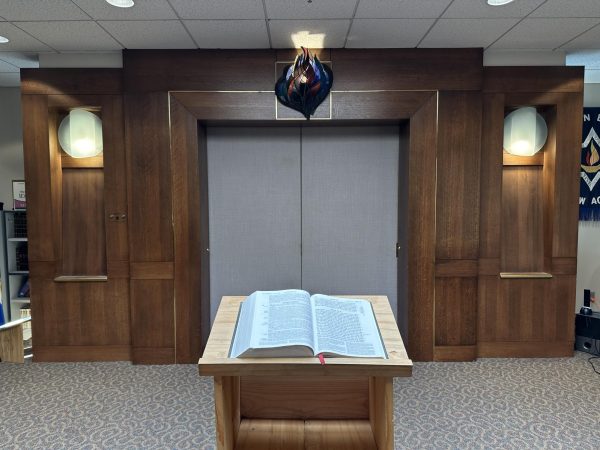Civil asset forfeiture is a legal minutiae that many lawyers are unfamiliar with. Civil forfeiture, “allows the government (typically the police) to seize — and then keep or sell — any property that is allegedly involved in a crime or illegal activity” according to Legal Information Institute.
Civil forfeiture does not require a criminal conviction. This means, a completely innocent person may have their money or property taken by law enforcement and never be charged with a crime. If this innocent person would like their property back, then they are forced to sue the law enforcement agency. In almost every other scenario people would call this theft, but when it comes to civil forfeiture, we call this ‘effective’ law enforcement.
Civil forfeiture begins when law enforcement seizes property or cash. They are able to seize any property as long as they claim it was gained from or used in criminal activity. If the owner of the property or cash does not file the correct paperwork to initiate a forfeiture hearing (usually within 30 days of the seizure), their property is permanently forfeited to the seizing agency without ever being reviewed in court.
Forfeiture proceedings are intentionally complicated. In order to successfully fight a seizure, a lawyer is almost always necessary. An average forfeiture lawyer will cost about $5,000. The Institute for Justice found that 63% of national seizures are under that amount. This means, over half of all seizures are not worth fighting. If someone does not challenge a seizure, it is called a default. In Kansas during 2022 there was a default rate of 74.9% (2022 annual Kansas asset forfeiture legislative report). This means, law enforcement agencies got to keep all profits from almost three-quarters of seizures without ever spending a second in court justifying their seizures.
Police agencies get to keep all of the proceeds gained through civil forfeiture. Another core tenet of civil forfeiture that makes it so easily abused, is the availability of federal adoptions. Local law enforcement agencies can request that a forfeiture case be taken by a federal agency (usually the DEA). Forfeiture cases become much harder to fight once they have been adopted by the federal government. Even after handing the case off to the federal government, the seizing agency (usually local law enforcement) can receive up to 80% of the profits the federal government won for them.

Two civil forfeiture reform bills were introduced in this season of Kansas Congress: HB 2606 and SB 458. The House bill’s core provisions are one, requirement of a probable cause affidavit to begin a forfeiture proceeding and two, a raise in the burden of proof required to seize property and the ability to order payment of attorney fees and costs for certain claimants. This bill has the support of the KBI and has unanimously passed the House. The Senate bill in its original composition includes all of the provisions of the House bill, yet it adds a ban on federal adoptions and allows the claimant to request a jury trial.
The Senate bill has been by far the more controversial bill. The KBI has given testimony in opposition to this bill. Understanding the power of federal adoptions, it is clear why the KBI (an agency that uses civil forfeiture) has a special interest in protecting them. The KBI also claimed that jury trials will unnecessarily drag out forfeiture hearings. This bill passed in the Senate as it was originally introduced. The House bill also passed the House as it was originally introduced.
However, once the Senate bill was introduced to the House, the House Committee on Judiciary marked out the two provisions that made SB 458 unique. As of Friday, April 5, 2024, SB 458, with the mark-ups made in the House Committee on Judiciary, unanimously passed both houses of Congress. Now, the bill will be sent to Governor Laura Kelly to be signed into law.
By far, the most effective method of reform would be to redirect civil forfeiture proceeds to a State General Fund (SGF). This would completely remove all incentives to abuse civil forfeiture.
Interestingly, Jewish law takes this exact approach. Rabbi Berel Sosover, a Jewish Studies teacher at HBHA said, “If a field is used for a crime… they (the judges) could say property is up for anybody.” In this instance, the field is seized by the judges; however, the field is not kept by the judges who took it. Rabbi Sosover also said, “They (the judges) wouldn’t take it for themselves.” Instead, the field becomes ownerless, and everyone would be allowed to take produce from the field. Maimonides explains this process in Mishnah Kil’ayim chapter two.

This is the key difference between the biblical equivalent of forfeiture and modern civil forfeiture. Biblical forfeiture emphasizes the seized property be equitably distributed to the people instead of being kept by the seizing agency. It has taken years of advocacy to propose a bill with the simple yet effective reforms that ancient Judaica used, and it was still rejected. Even with the beneficial reforms pending in SB 458, there will always be a temptation to abuse forfeiture for profit without the use of a forfeiture SGF.















